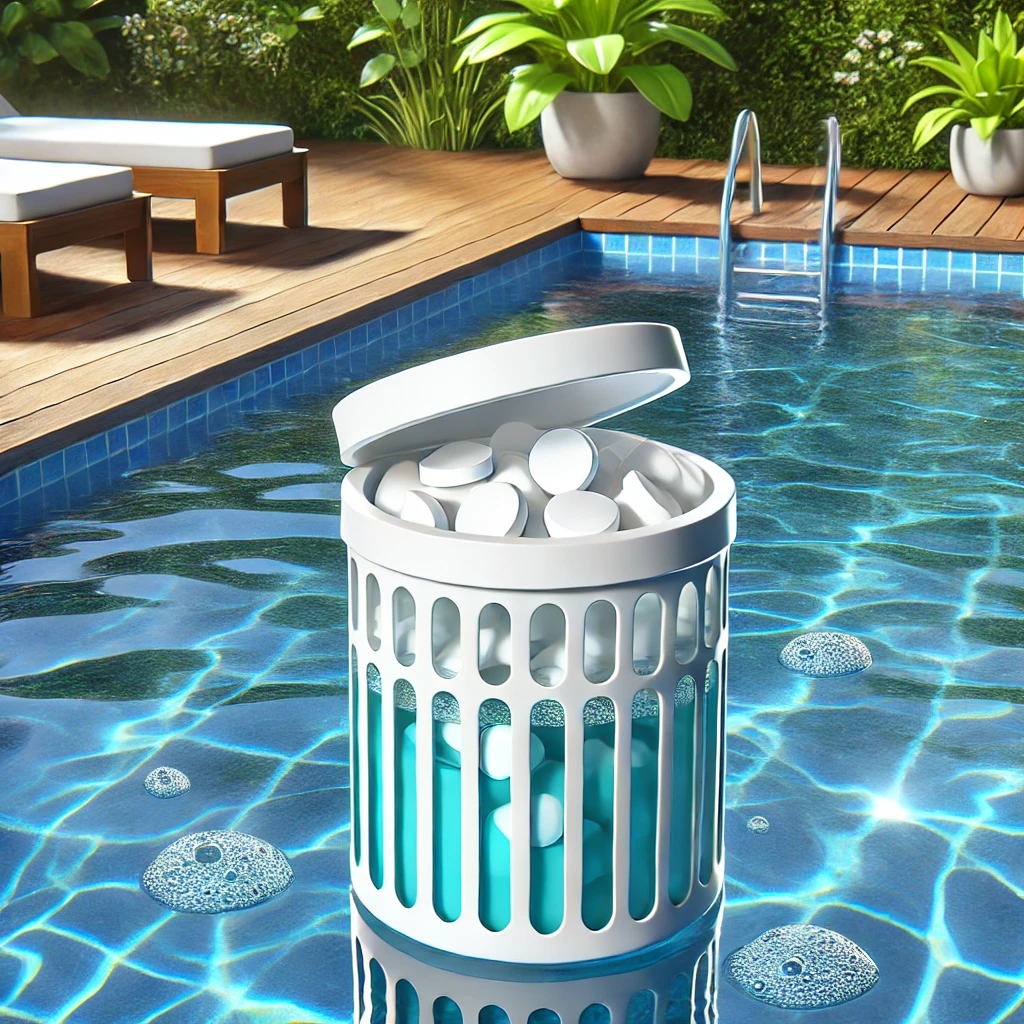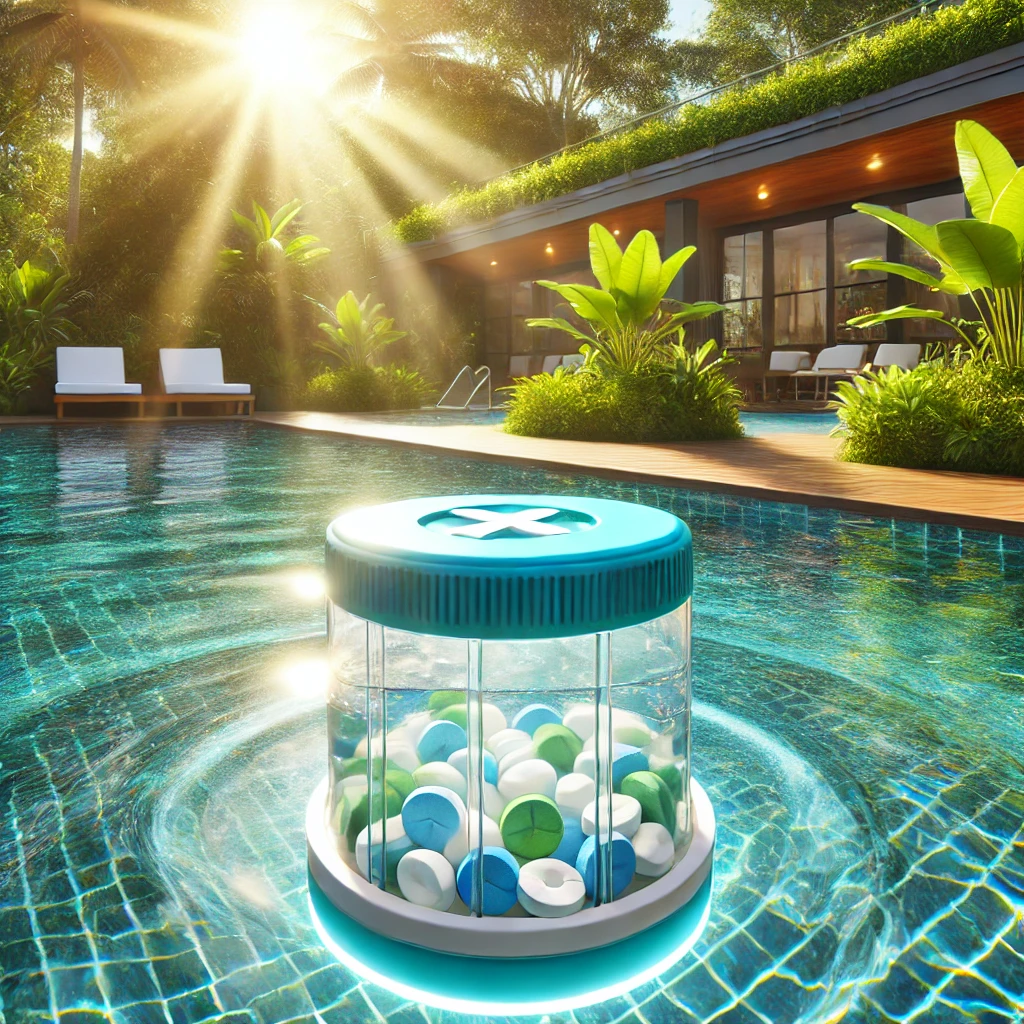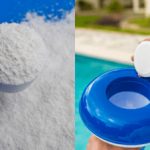Maintaining a clean pool is essential, and chlorine tablets are a key part of the process. However, many pool owners wonder how to balance the need for efficiency with environmental concerns. By carefully selecting pool chlorine tablets and accessories, like a chlorine tablet holder, you can ensure both effective pool maintenance and a reduced environmental impact.

I. Understanding the Role of Pool Chlorine
Pool chlorine is essential for keeping water clean and safe. It kills bacteria, algae, and other harmful organisms. Chlorine tablets dissolve slowly, releasing chlorine over time, ensuring a steady flow of disinfectant.
However, not all chlorine tablets are created equal. Some release harmful byproducts into the environment. Therefore, choosing eco-friendly options is crucial.
II. Choosing Eco-Friendly Pool Chlorine Tablets
When selecting chlorine tablets, focus on those with fewer harmful additives. Many chlorine tablets contain chemicals that release dangerous compounds into the environment. Opt for chlorine tablets that are labeled as environmentally safe or biodegradable.
Eco-friendly pool chlorine products work effectively without compromising water quality. They use fewer harsh chemicals, reducing their environmental footprint.
III. Using a Chlorine Tablet Holder for Efficiency
A chlorine tablet holder ensures that tablets dissolve evenly and at the right pace. By placing your chlorine tablets in a holder, you can better control the rate of chlorine release into your pool. This prevents waste and ensures efficient use of each tablet.
Additionally, a chlorine tablet holder helps protect the tablets from dissolving too quickly due to sunlight or fast-moving water. By using a holder, you reduce the number of tablets needed over time.
IV. Balancing Efficiency with Sustainability
Using fewer chlorine tablets means less chemical runoff into the environment. By controlling the chlorine release with a tablet holder, you reduce both the amount of chlorine you use and the frequency of tablet replacements. This is both efficient and eco-friendly.
Eco-friendly pool chlorine options may cost more upfront, but they save money in the long run. You’ll use fewer tablets, and they often last longer than traditional options.
V. Avoid Over-Chlorination
Many pool owners mistakenly believe that using more chlorine is better. However, over-chlorination wastes resources and can damage the environment. Too much chlorine can harm local ecosystems when pool water is drained.
By properly measuring chlorine levels, you can ensure you’re only using the amount needed. This helps maintain water quality without harming the planet.
VI. Monitor and Adjust Chlorine Levels Regularly
Regular testing ensures that you’re maintaining the right chlorine balance. Pool chlorine levels should be kept between 1-3 ppm for optimal effectiveness. If levels are too high, you’re wasting chemicals. If levels are too low, your pool isn’t being properly disinfected.
By regularly monitoring chlorine levels, you can adjust the number of chlorine tablets used. This prevents waste while ensuring a clean and safe pool.
VII. The Environmental Impact of Pool Water Disposal
When you empty your pool, the chlorine in the water can harm the environment. High chlorine levels can kill plants and disrupt local water systems. Before draining your pool, ensure the chlorine level is safe.
Allow the chlorine to dissipate naturally by exposing the water to sunlight. This helps neutralize the chlorine before it enters the environment.
VIII. Recycle and Dispose of Chemicals Responsibly
When it’s time to dispose of pool chlorine tablets, do so responsibly. Never throw chlorine tablets into the trash. Many pool chemicals are considered hazardous waste and should be disposed of at proper facilities.
Look for local hazardous waste disposal services to ensure you’re not contributing to pollution. Recycling or disposing of chemicals properly helps protect the planet.
IX. The Role of Technology in Sustainable Pool Maintenance
New technologies are emerging to help pool owners maintain efficiency while being eco-friendly. Saltwater chlorinators, for instance, convert salt into chlorine without the use of chemical tablets. While this requires an initial investment, it drastically reduces chemical use over time.
Smart pool monitoring systems can also help maintain optimal chlorine levels. These systems provide real-time data on water quality, reducing unnecessary chemical use.

X. Conclusion
Balancing efficiency and environmental sustainability when choosing chlorine tablets is essential. By selecting eco-friendly pool chlorine tablets and using a chlorine tablet holder, you can reduce chemical use, save money, and protect the environment.
Regular monitoring of pool chlorine levels prevents waste, while responsible disposal of chemicals ensures minimal environmental harm. With new technology and smarter choices, it’s possible to maintain a clean pool and still do your part for the planet.
In the end, responsible pool maintenance benefits both you and the environment. By being mindful of your chlorine tablet use and leveraging tools like a chlorine tablet holder, you can enjoy a safe and healthy pool without compromising the health of our planet.





